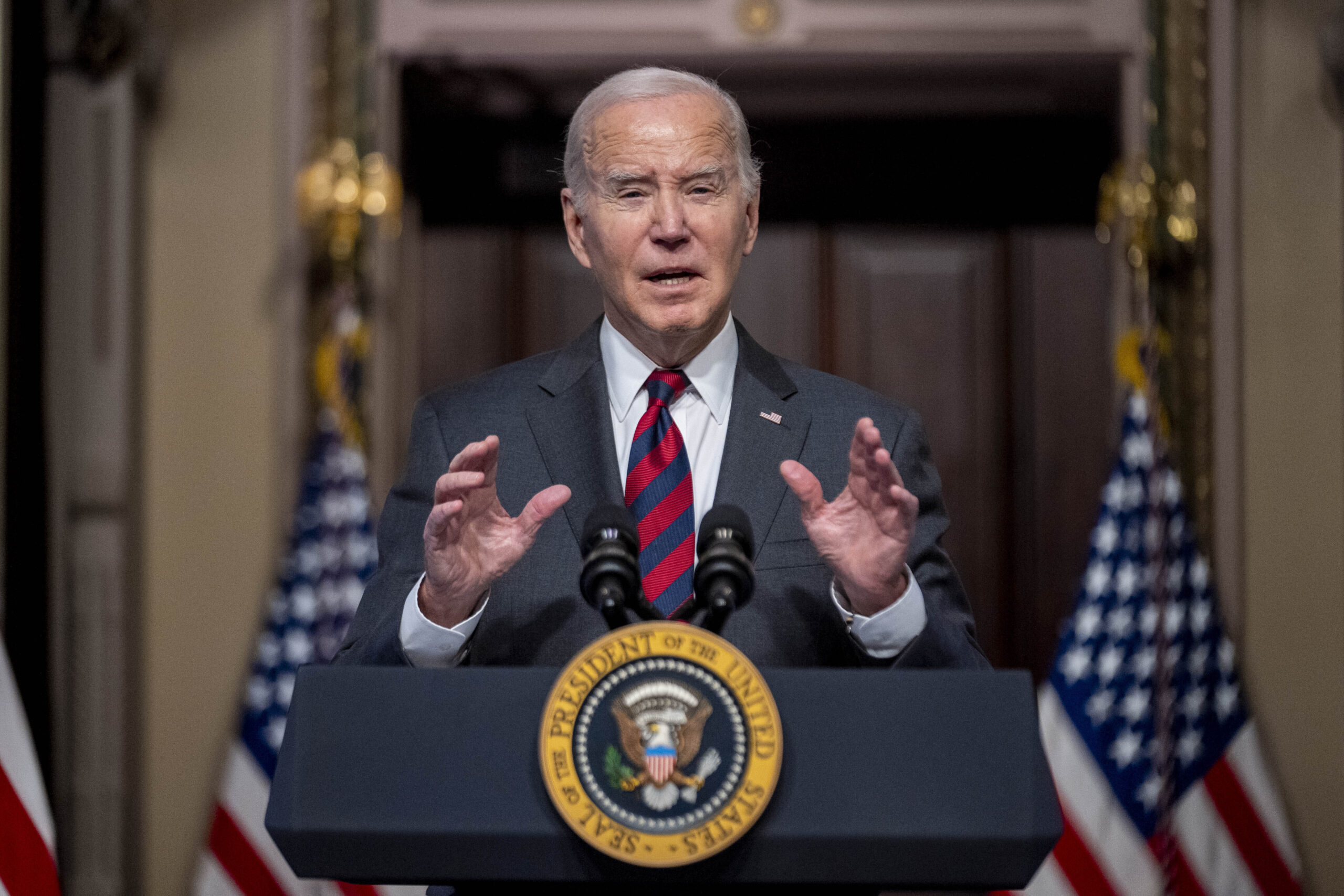America’s adversaries are on the move.
Houthi terrorists
are attacking and hijacking commercial vessels.
Venezuela
may be set to invade and annex territory from Guyana. And the conflict in the Middle East continues to boil over into the Western world as
Israel
grapples with the fallout of
Hamas’s
brutal Oct. 7 terrorist attack on innocent civilians.
MADURO’S THREAT AGAINST OIL-RICH NEIGHBOR RAISES SPECTER OF PUTIN COPYCAT IN VENEZUELA
To put it simply, our enemies are getting it while the getting is good. President Joe Biden’s weak policies are emboldening America’s enemies. Without credible deterrence, terrorists and despots will continue to unleash bloodshed.
This administration’s policies paved the way for the violence we’ve seen in the Middle East. There would be no Hamas without Iran. Iran
funds
93% of Hamas, which killed 33 Americans on Oct. 7 and is now holding at least eight Americans hostage.
Iran’s proxies in Iraq, Syria, and Yemen, meanwhile, are busy targeting American soldiers and sailors. These attacks have
injured at least 62
American service members in recent weeks.
Since he took office, Biden restarted former President Barack Obama’s disastrous Iran nuclear deal, rolled back crucial Trump-era maximum pressure sanctions, and unlocked billions of dollars in frozen funds for the Iranian regime. Iran’s daily exports of crude oil, a major source of funding for Iran and its sponsored terrorist cells, have
skyrocketed
142%. Over this same time period, Iranian-backed proxy groups have launched
over 150 attacks
on U.S. forces in the Middle East.
When I was in the Trump administration, we understood that the only language America’s adversaries (such as Iran) understand is the language of strength. The only act that deters Iran is kinetic consequence.
If you want peace in the Middle East, then you must establish credible deterrence. When Iranian general Qasem Soleimani was planning attacks on American soldiers throughout the region, for example, President Donald Trump didn’t hesitate to assassinate the terrorist.
Biden’s response so far to attacks on Americans in the region has been to bomb a few buildings in Syria and to suggest that Israel needs to take a “pause” on combating Hamas’s threat. His administration also continues to downplay the consequences of his own policies. Shortly after Hamas’s terrorist attack, for example, Foreign Affairs published an article from national security adviser Jake Sullivan that claimed the Middle East was “quieter than it has been in decades” and that Biden had successfully deterred Iran from attacking U.S. troops in the region. The hubris would be laughable if there weren’t deadly consequences to it.
The fact is this administration has bent over backward since day one to accommodate our enemies, including the Iranian regime. One of the first things Biden did after assuming office was
take
the Houthis off of the State Department’s terrorist list.
The Iranian-backed Houthis have been one of the more active members of the so-called Axis of Resistance, launching drones and firing multiple ballistic missiles at Israel as well as hijacking and attacking commercial vessels. Just this past week, the USS Carney shot down a drone from the Houthis that was
headed
toward the Navy vessel. Despite the rising aggression in the Red Sea, the Biden administration
remains hesitant
to take any forceful response.
When I was in the State Department, we never would have let the Iranian foreign minister visit New York City while his terrorist buddies were plotting to kill Americans. When Javad Zarif asked for a visa, Trump’s Secretary of State Mike Pompeo said no. His successor, Hossein Amir-Abdollahian, asked for one, and Biden’s Secretary of State Antony Blinken didn’t bat an eye. Shortly after
visiting
with Hamas’s leader, Amir-Abdollahian
threatened
the United States from the United Nations podium.
But the chaos isn’t just in the Middle East. Venezuela, a
close ally
of Iran, recently held a referendum giving President Nicolas Maduro a mandate to support the
annexation
of much of the oil-rich territory of neighboring Guyana, a U.S. ally. The Biden administration
responded
that it “obviously” doesn’t want any “violence” or “conflict to occur.”
Given that Biden himself emboldened Venezuela with his policy of appeasement,
easing sanctions
on Venezuela’s oil sector and begging them to produce more crude oil, it is clear that a pattern is emerging.
This administration acts like the Iranian regime has the upper hand. It doesn’t. When the regime tried testing us in late 2019 to see if we were weak, we didn’t fall for its games. We hit back strong — as Soleimani learned the hard way.
The Trump administration made it clear to the Islamic Republic of Iran that if one of its proxies harmed an American, it would be held accountable as if it had perpetrated the violence itself. Biden must restore deterrence before it is too late.
CLICK HERE TO READ MORE FROM THE WASHINGTON EXAMINER
Morgan Ortagus is the host of the Morgan Ortagus Show on Sirius XM, the founder of Polaris National Security, a former spokesperson for the U.S. State Department, and a former intelligence analyst.






